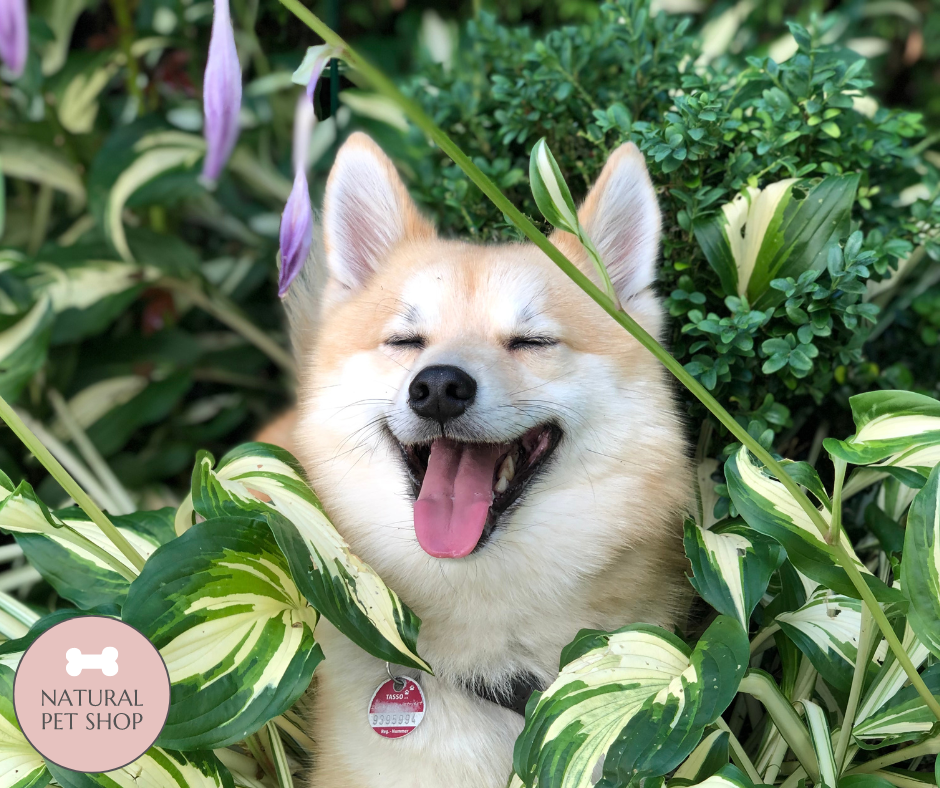
5 Signs That Your Pooch is Happy
I had a really interesting consult the other day where a client ultimately just wanted me to answer the question: ‘Is my dog happy?’, and if not, ‘how can I make them happier?’. Usually, these types of questions come from owners whose dog is lower energy and/ or is sleeping a lot. Sometimes an owner notices their dog seems less interested in things that used to excite them, or they may have gone off their food. You can certainly see why people would start to question if their dog is more sad than usual!
The most important thing to do in these scenarios is check with your vet. Book your dog in for a health check and get a medical all clear as a priority, and then you can have a little run through of this list I’ve made: ‘5 signs your pooch is happy.’
1. Your dog is sniffing lots on their walks.
Dogs live to sniff. It’s quite literally biologically programmed into them (Duranton
and Horowitz., 2019)! Whilst humans process the world through their eyes, dogs do so via the nose. This means that whilst out and about your dog is on an information gathering quest! What looks like just a boring blade of grass to us can give them so much information. A happy dog will want to have a good sniff when they’re out on their walk so that they can learn about the environment. Want to take things up a notch? Take your dog on a new walk somewhere they have never been before! Give them a smelly buffet.
and Horowitz., 2019)! Whilst humans process the world through their eyes, dogs do so via the nose. This means that whilst out and about your dog is on an information gathering quest! What looks like just a boring blade of grass to us can give them so much information. A happy dog will want to have a good sniff when they’re out on their walk so that they can learn about the environment. Want to take things up a notch? Take your dog on a new walk somewhere they have never been before! Give them a smelly buffet.
2. They’re still enjoying the things that they usually do.
If your dog’s favourite thing in the world is playing fetch with their ball, and then one day they seem totally uninterested, this can be a strong indication that something isn’t right. A happy, healthy dog will consistently display similar likes and dislikes throughout their adult life. This is largely due to genetics! Whilst I’d expect some inconsistency during puppyhood and adolescence, significant changes from age 2 onwards can often signal there is something more at play…
3. Engaging socially
How and when a dog socialises will vary massively from dog to dog. They key thing is that you’re noticing a degree of consistency here. Sociability in dogs exists on a sliding scale- much like in humans! Whilst some dogs are happy to engage with every dog they meet, others are more reserved and prefer the company of their owners. If I were to see a highly social dog suddenly shying away from interactions or behaving aggressively, this would be a clear sign to me that something is not right with the dog.
4. No changes to activity levels.
A happy dog will keep relatively constant sleep and wake cycles. The average dog spends about 50% of a 24 hour period asleep, and an additional 30% resting (Adams and Johnson., 1993)! This means that the vast majority of the time your dog will seem inactive. Of course, in higher energy working breeds you’d expect less of this. If you notice your dog is suddenly more restless, sleeping less or struggling to relax then it could absolutely be a sign that your dog isn’t happy.
5. Appetite
Grab your dog’s favourite treats and see if you can teach them a new trick! If your dog is readily engaging with you and trying to figure out how to get access to their favourite snack then most likely all is well. Dogs that are happy are always seeking access to their favourite treats and chews. If your dog is reluctant to eat something they once loved, then perhaps a check-up at the vets would be a good idea.

About The Author:
Annie-Mae Levy
Dog Behaviourist & Trainer
Canine Nutritionist
www.ani-mal.co.uk
annie@ani-mal.co.uk
Give her a follow -
Instagram: @annietrainsdogs
Facebook: @anniesdogs
References
1. G.J. Adams, K.G. Johnson, Sleep-wake cycles and other night-time behaviours of
the domestic dog Canis familiaris, Applied Animal Behaviour Science, Volume 36,
Issues 2–3, 1993, Pages 233-248, ISSN 0168-1591, https://doi.org/10.1016/0168-
1591(93)90013-F.
2. Kaminski, J. and Marshall-Pescini, S., 2014. The social dog: behavior and
cognition. Elsevier.
3. Duranton, C. and Horowitz, A., 2019. Let me sniff! Nosework induces
positive judgment bias in pet dogs. Applied Animal Behaviour
Science, 211, pp.61-66.


Leave a comment